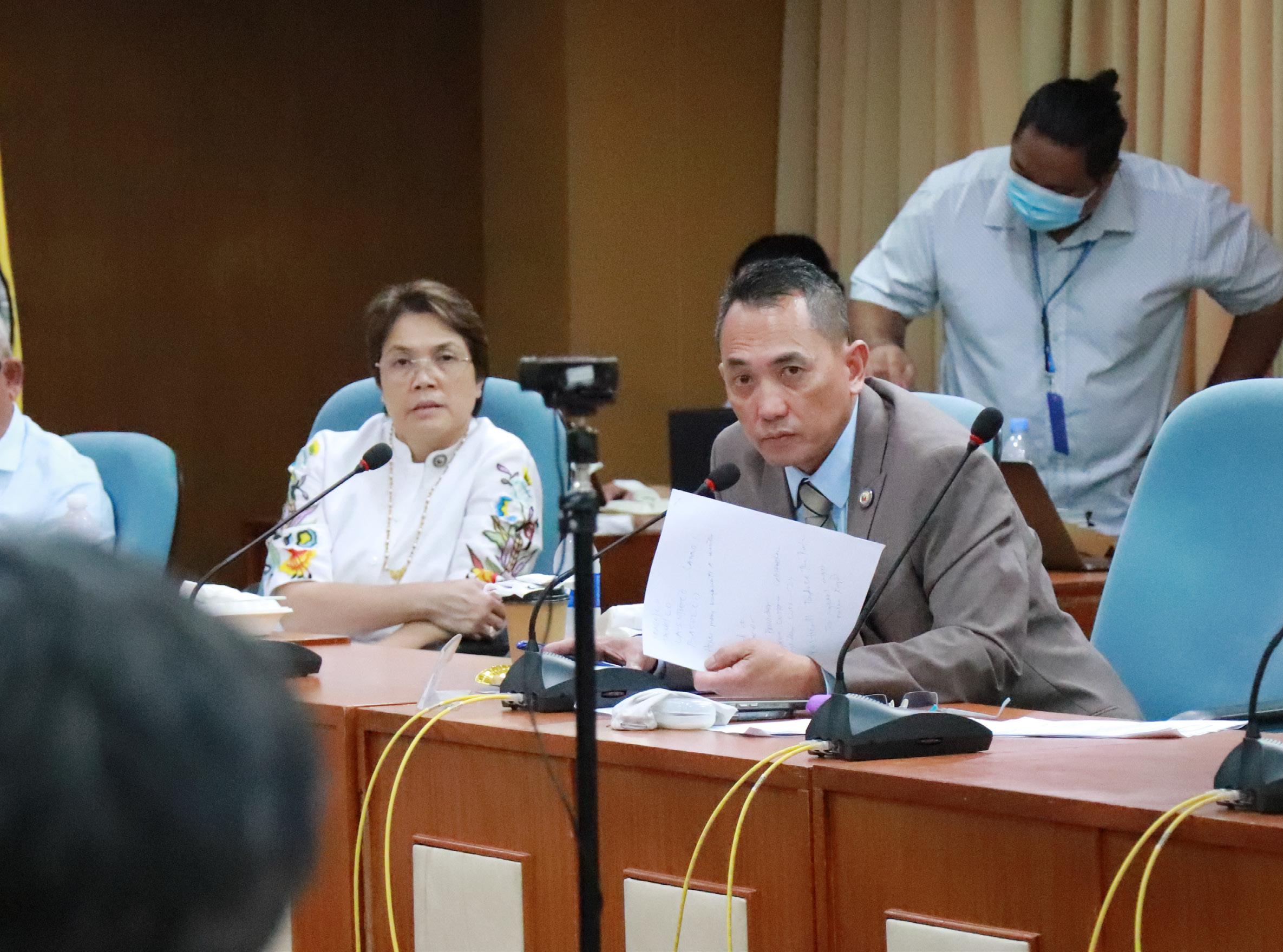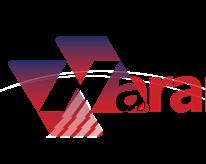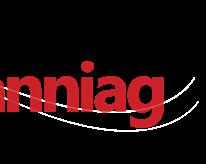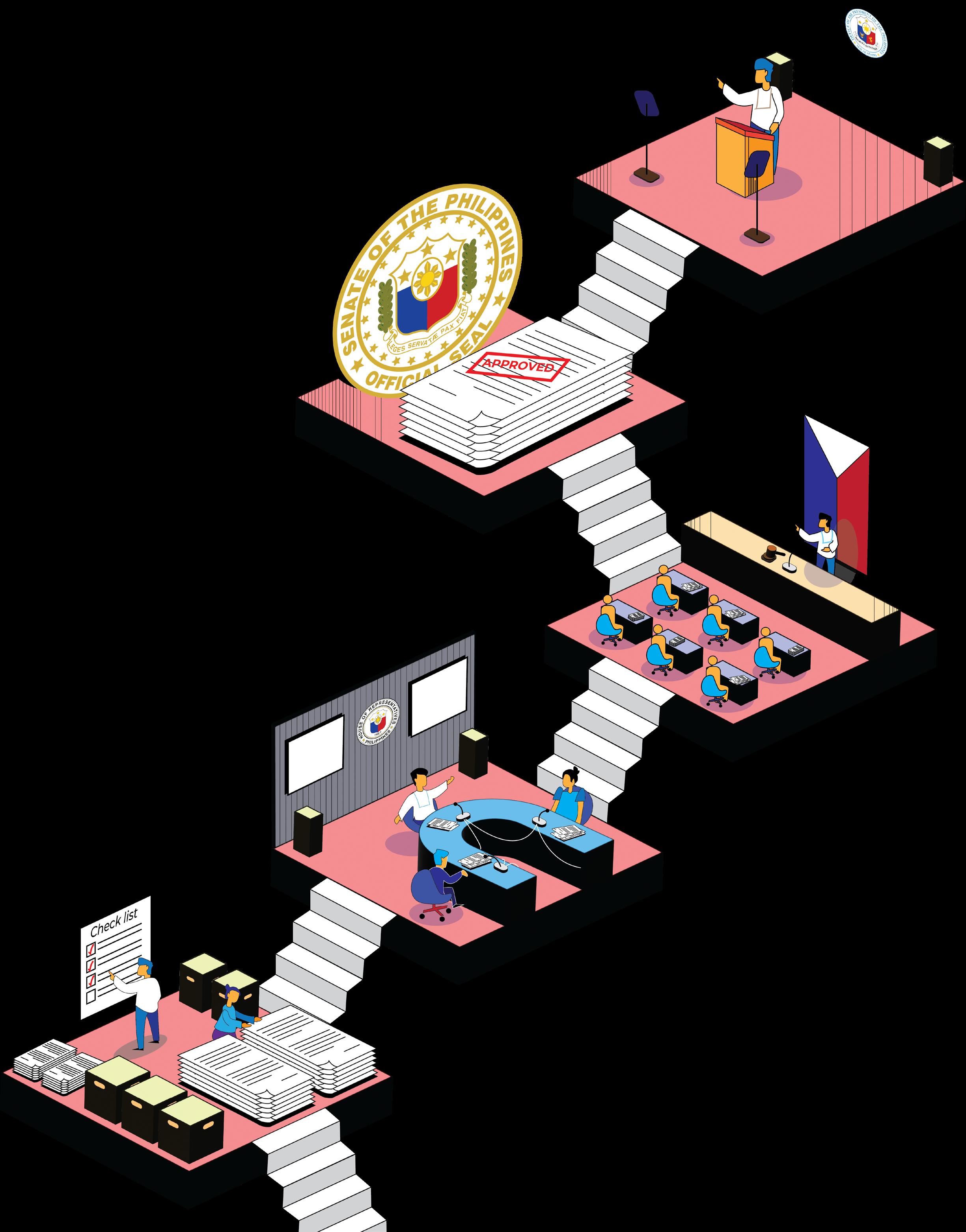■

■ Deputy Minority Leader encourages ECs in franchise application... page 3
■ Steps on Congressional Franchise Application... page 4



■

■ Deputy Minority Leader encourages ECs in franchise application... page 3
■ Steps on Congressional Franchise Application... page 4


On December 5, 2022, the House of Representatives approved on Third and Final Reading House Bill 6295, granting the Leyte II Electric Cooperative (LEYECO II) the Congressional franchise to operate and provide electric services to the City of Tacloban and the Municipalities of Babatngon and Palo, Province of Leyte.
In their sponsorship speech, the principal aut of the bill stated that LEYECO II was able to energize 100% of the barangays within their franchise area. Notably, LEYECO has been consistently categorized as a “AAA” cooperative, the highest categorization given by the supervising government
agency for electric cooperatives, the National Electrification Administration.
According to Deputy Minority Leader Presley De Jesus, “the enactment of this bill will ensure the continuous delivery of electric service from LEYECO II and will continue to create the path towards progress in Leyte.”

HB 6295 is principally authored by the Power Bloc Representatives Presley De Jesus and Sergio Dagooc, House Speaker Ferdinand Martin Romualdez, TINGOG Partylist Representatives Yedda Marie Romualdez and Jude Acidre, House Committee on Legislative Franchises Chairperson, Representative Gus Tambunting, Representative Pablo John Garcia, and Representative Edward
“The passage of HB 6295 is a huge win for the whole electric cooperative movement. This solidifies its position as a trusted partner in achieving total electrification of the country and ensuring a brighter future for generations to come,” De Jesus said.
In a statement, LEYECO II expressed their gratitude to the principal authors of HB 6295, saying, “Thank you for ensuring that we will be able to continue to serve the Leyteños by upholding our mandate of total rural electrification. Padayon kita nga mamamati han tingog han mga mulopyo ug maghahatag hin lamrag han kinabuhi…”
Vera Perez Maceda.“The passage of HB 6295 is a huge win for the whole electric cooperative movement. ”

In line with their commitment to supporting electric cooperatives (ECs), Power Bloc Representatives Presley De Jesus of PHILRECA Party-list and Rep. Sergio Dagooc of APEC Party-list wrote a letter addressed to Secretary Jesus Crispin C. Remulla of the Department of Justice (DOJ) in an effort to revisit the 2014 DOJ Opinion No. 55 regarding Real Property Tax (RPT) Exemption.
In their letter, the Power Bloc highlighted the exemption from income taxes granted to ECs under Section 39 of Presidential Decree No. 269, as amended by the Republic Act No. 10531. However, this exemption was stripped away by the Local Government Code (LGC) of 1991, which allowed for the withdrawal of exemptions from local taxes for various entities, excluding registered cooperatives, non-profit hospitals, and educational institutions.
this would have on consumers stating “the imposition of tax on a non-profit cooperative shall result in the increase of the amount payable on the electricity bill of the consumers since it is considered as a pass-through charge. Ultimately, the end consumers shall shoulder the burden of these taxes.”
The Committee on Energy House Resolutions 34, 116, to address the power supply prolonged power outages in the
PHILRECA Party-list Representative Power Corporation (NPC) in cases and Occidental Mindoro. He events.
Electricity be affordable, should electricity
The imposition of tax on a nonprofit cooperative shall result in the increase of the amount payable on the electricity bill of the consumers since it is considered as a pass-through charge. Ultimately, the end consumers shall shoulder the burden of these taxes.
Last December 13, the DOJ issued Opinion No. 31 series of 2022, reversing the previous 2014 opinion by stating that all electric cooperatives, regardless of whether they are non-stock, non-profit cooperatives under the National Electrification Administration, stock cooperatives under the Cooperative Development Authority, or stock corporations registered under the Securities and Exchange Commission, can avail of the preferential rights under the LGC as long as they comply with the financial and operational standards set by the NEA.

NPC Officer-in-Charge from the Island of Mindoro, it passes the obligation of power explained that even in cases where NPC cannot automatically come the use of government resources providers. He added that having utilities group areas would be costly Rep. De Jesus countered electricity at all”, and stressed that there should be a continuous supply Rep. De Jesus further manifested areas could only be resolved by “This is what the Electric legislature, we have been taking We passed the Microgrid Systems unserved and underserved areas
The 2013 amendment to RA 10531 inserted Section 32-A to clarify that ECs can still enjoy the preferential rights granted to cooperatives under the LGC. However, the 2014 DOJ Opinion No. 55 declared that ECs are still liable for local taxes, including the RPT.

The Power Bloc highlighted the negative impact
The legal opinion, addressed to the Power Bloc and the Department of Energy Secretary Raphael Perpetuo M. Lotilla is aligned with the NEA’s goal “to empower and enable ECs to cope with the changes brought about by the restructuring of the electric power industry”.

Energy of the House of Representatives continued its inquiry into 116, 118, 133, and 148 on November 17, 2022. The five HRs seek crises in Occidental and Oriental Mindoro, which have caused the two provinces.

Representative Presley De Jesus inquired about the role of National cases of power supply shortage as experienced in Oriental Mindoro stressed that the NPC should have a contingency plan for such

Melchor Ridulme responded that NPC has already “graduated” explaining that when NPC “graduates” from a missionary area, power generation to the new power providers (NPPs). He further where NPPs fail to provide the power requirements of an area, the come in as it needs the directive of the Department of Energy to justify resources in supplying electricity to areas that already have other power having a standby quick response generator sets for every small power costly for NPC.
countered this by stating that “the most expensive electricity is having no that “electricity is a basic right; it should be affordable, reliable and supply of electricity in the provinces and in Metro Manila.” manifested that the perennial problem of Mindoro and other off-grid by one thing: interconnection to the main grid.
Electric Power Industry Reform Act (EPIRA) has envisioned. In the steps to address the shortcomings of EPIRA and its implementation. Systems Act primarily intended to spur the microgrid development in the areas nationwide,“ De Jesus emphasized.
Party-list Representative
Presley De Jesus attended the “EC Franchise Application” webinar organized by the Philippine Rural Electric Cooperatives Association Inc. (PHILRECA) last January 27.
Deputy Minority Leader De Jesus delivered an inspirational message to the attendees and expressed his confidence that electric cooperatives will be successful in their franchise applications because “ECs are hardworking, resilient and have paved the way for progress in our communities,”
“I am optimistic that our colleagues in the House of Representatives will recognize that Electric Cooperatives helped improve the lives of so many Filipinos and are deserving of a legislative franchise.” De Jesus said.
The event featured several speakers, including Atty. Ma. Victoria Castillon, Committee Secretary of the House Committee on Legislative Franchises, who discussed the process of filing for franchise bills, the documentary requirements, and its
process flow; Leyte II Electric Cooperative’s Institutional Services Department Manager Mr. Chris Garcia, who shared LEYECO II’s recent experience in complying with their own franchise application; Atty. May Flor Abuedo, the National Electrification Administration’s representative for Franchise Concerns, who tackled the Regulatory Concerns; and Atty. Karlo Domondon, PHILRECA Party-list’s Chief of Staff, who concluded the webinar with a synthesis and recap on EC’s Franchise Application.
The webinar was attended by the leaders and officers from various electric cooperatives. It was also graced by the Chairman of the House Committee on Legislative Franchise, Rep. Gus Tambunting, APEC Party-list Representative Sergio Dagooc and PHILRECA General Manager & Executive Director, Atty. Janeene DepayColingan.
The webinar covered important topics related to the process of applying for a franchise to operate as a provider of electricity in their respective areas.

Electricity is a basic right; it should affordable, reliable and there should be a continuous supply of electricity in the provinces and in Metro Manila.


The bill is received by the Office of the President for its action. If approved, the franchise law is enacted. If there is no action after 30 days from receipt, the bill lapses into law. If vetoed, the bill is transmitted to the House.
The bill, approved by the House, is received by the Senate, and is referred to the Committee on Public Services. The bill then undergoes the same legislative process. Upon its Third Reading approval, a Conference Committee is formed, composed of Members from each House of Congress to reconcile differences on any provisions of the bill. Afterwhich, the Conference Committee then prepares a report to be signed by all the conferees and the Chairman.The signed report is then transmitted to the President.
The committee report with the substitute bill is transmitted to the Plenary and referred to the Committee on Rules for consideration on Second Reading. During this period, the bill will be read in the Plenary for sponsorship, debates, proposed amendments, and then approval.
After Second Reading, the bill will be read in the Plenary for Third Reading. On this stage, there will be a nominal voting for the approval of the bill. The approved bill is then transmitted to the Senate for its action.
The franchise bill undergoes a series of deliberations under the House Committee on Legislative Franchises. Once amended, a substitute bill is created. The committee then approves and releases a committee report.
Once a franchise bill is filed, concerned electric cooperative shall submit the documentary requirements to the House Committee on Legislative Franchises. For the complete list of requirements, go to: bit.ly/CFA_Requirements
